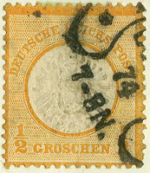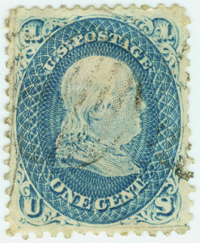
Discussion - Member to Member Sales - Research Center

Discussion - Member to Member Sales - Research Center



I bought it because of my interest in the Philippine War (1899-1902), considered by some historians to be a precursor of the Vietnam War in that it was an "asymmetrical war," which means that the modern American army met, for the first time, a guerrilla army (Filipino insurrectionists). Like the Vietnam War, the Philippine War was not popular at home, and for some of the same reasons. The Vietnam War had the My Lai massacre; in the Philippines, American soldiers were ordered to destroy entire villages, sparing no one. Anyhow…
I am curious about the signature in the return address. It looks like Henry Lippincott, and indeed there was a Henry Lippincott. I found this entry in a web page:
Lippincott, Henry, M.D., New Glasgow; Jefferson Med. Col., 1863; died in 1908. Dr. Lippincott was born in 1839, served as assistant surgeon in civil war, saw distinguished service throughout the country, notably in the Indian campaigns with General Custer. Directed the medical department of the Philippine expedition during the Spanish American war under General Merritt, later with General Otis. Returned to America broken in health, but in 1901 was appointed chief surgeon, Department of the East, at Governor's Island, N. Y., the most important medical appointment in the United States army after the post of surgeon general.
It looks like the writer of the letter left a space for Lippincott's signature, which served to indicate that the letter had been censored. In the Second World War, both American and British officers used "Privilege" envelopes which, if signed by the sender, allowed the letter to skip censorship at the unit level, thus speeding it on its way. Am I on the right track with this cover?
(I've also found evidence on-line that the sender became a physician, and was — possibly — the first student at the University of Iowa. I have written to a woman who appears to be his granddaughter.)
Bob

1 Member
likes this post.
Login to Like.

Here is a cover from the Philippine War that I purchased recently:


I bought it because of my interest in the Philippine War (1899-1902), considered by some historians to be a precursor of the Vietnam War in that it was an "asymmetrical war," which means that the modern American army met, for the first time, a guerrilla army (Filipino insurrectionists). Like the Vietnam War, the Philippine War was not popular at home, and for some of the same reasons. The Vietnam War had the My Lai massacre; in the Philippines, American soldiers were ordered to destroy entire villages, sparing no one. Anyhow…
I am curious about the signature in the return address. It looks like Henry Lippincott, and indeed there was a Henry Lippincott. I found this entry in a web page:
Lippincott, Henry, M.D., New Glasgow; Jefferson Med. Col., 1863; died in 1908. Dr. Lippincott was born in 1839, served as assistant surgeon in civil war, saw distinguished service throughout the country, notably in the Indian campaigns with General Custer. Directed the medical department of the Philippine expedition during the Spanish American war under General Merritt, later with General Otis. Returned to America broken in health, but in 1901 was appointed chief surgeon, Department of the East, at Governor's Island, N. Y., the most important medical appointment in the United States army after the post of surgeon general.
It looks like the writer of the letter left a space for Lippincott's signature, which served to indicate that the letter had been censored. In the Second World War, both American and British officers used "Privilege" envelopes which, if signed by the sender, allowed the letter to skip censorship at the unit level, thus speeding it on its way. Am I on the right track with this cover?
(I've also found evidence on-line that the sender became a physician, and was — possibly — the first student at the University of Iowa. I have written to a woman who appears to be his granddaughter.)
Bob

1 Member
likes this post.
Login to Like.

